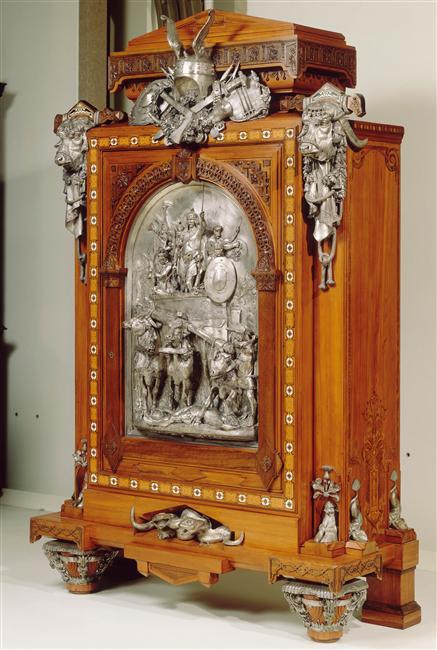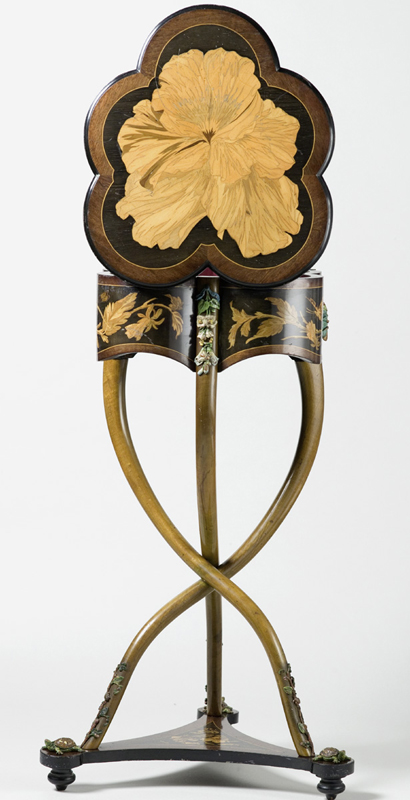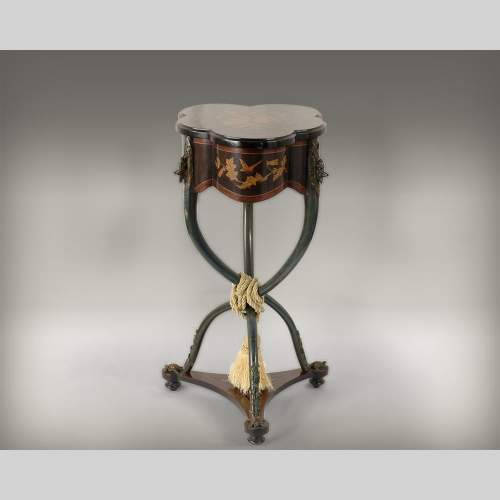Charles-Guillaume Diehl
Download PDFOf German origin, Charles-Guillaume Diehl was born in Steinbach (Grand-Duché de Hesse) on the 20th July 1811. He moved to Paris in 1840, to 3 rue de Thorigny, and then to 170 rue Saint-Martin, but wasn’t listed in the Almanach du Commerce until 1850. At this point, he set up at 16 rue Michel-le-comte. He then moved to number 21 on the same street (1851-1842) and to number 19, until he died (1853-1885). His workshops were located on 39 rue Saint-Sebastien, where he employed six hundred workers in 1870.
Training Tabletier, he developed his production towards making luxury furniture, attracting crowds at the Universal Exhibitions. Diehl made elegant little pieces of furniture out of rosewood and thuya in the style of Boulle, but instead these ones were caskets (decanters, boxes for games, gloves, cashmere, and jewellery) and were what made him famous. Jules Mesnard, in 1867, summarized Diehl’s production nicely “his work embraces all artistic furniture, from the 2 franc pin box to the big piece of furniture costing 70 000 francs. He has ordinary and current furniture, and costly furniture.” (The marvels of the Universal Exhibition of 1867).
The Parisian and international clientele loved the abundant and tasteful luxury objects that he produced, as much as the pleasingly elegant objects, found in the “articles de Paris” and French marquetry. His marquetry skills were rewarded by a silver medal at the World's Fair of 1867 in Paris. Outside this production; he was known for his furniture, tables, bases of cabinets, cabinets, often of very high quality, decorated with bronze or panels or elegant marquetry. During the World's Fair of 1878 in Paris, although he had obtained French nationally in 1872 (remarkable considering it was not even two years after the defeat of Sedan); Diehl was disqualified from the competition because of his passed success.






